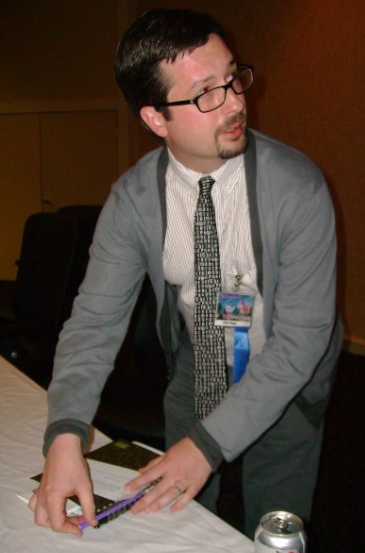If you’re like a lot of people I know, then you’re probably trying very hard to watch your expenses right now, but what if you’d like to try to take in a writer’s conference or two? Opportunities for networking and sharpening your craft are just a couple of reasons why that even during a recession attending a conference might be a good idea. But which one?
There are all kind of conferences, ranging from very informal, modest affairs to sprawling, major industry events. Some focus on readers, other on publishing professionals, and others yet on writers in specific genres. A little research can narrow things down to a list of potential cons that would be most appropriate for your career. But before you do that, it might be a good idea to ask yourself a few questions, first.
- What do you hope to accomplish at this event? Meet potential publishers? Agents? Network with other writers?
- Are you at a point in your career where any of the above might be constructive for you? If you’re just beginning your writing life, then meeting an agent might not be useful at all.
- How well do your career goals match those of the conference organizers?
After you’re sure of what you hope to accomplish and have picked out a few potential conventions for attendance, then you should move forward with some final research. One of the most important things you can do is to ask other people about the conference. A poorly organized event can fall apart quickly, despite a promising program schedule and great guests. Try to find other people who have attended in the past, and see what they’re experiences were. Also, don’t be afraid to approach the con organizers themselves with any questions that you may have.
Ultimately, you should let your instincts be your guide. If something sounds a little “off” about an event, then you’re better investing your time and money elsewhere.
Wondering where to start? Try these websites:
Writers’ Conferences and Centers
Conference Alerts
ShawGuides
 Matt Staggs is a literary publicist and the proprietor of Deep Eight LLC, a boutique publicity agency utilizing the best publicity practices from the worlds of traditional media and evolving social technologies. He has worked in the fields of public relations and journalism for almost a decade. In addition to his work as a publicist, Matt is a book reviewer and writer whose work appears in both print and web publications.
Matt Staggs is a literary publicist and the proprietor of Deep Eight LLC, a boutique publicity agency utilizing the best publicity practices from the worlds of traditional media and evolving social technologies. He has worked in the fields of public relations and journalism for almost a decade. In addition to his work as a publicist, Matt is a book reviewer and writer whose work appears in both print and web publications.